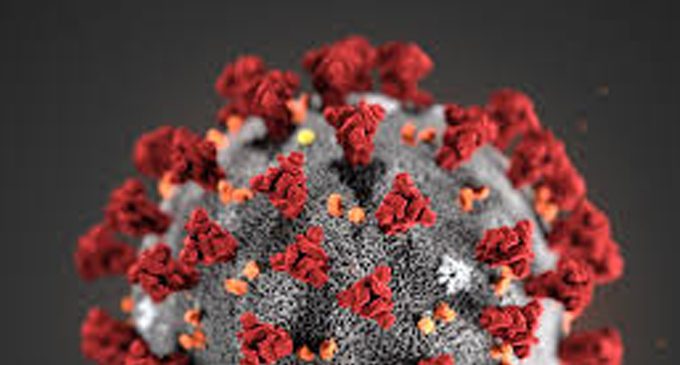Mental health counselor talks about the effects of COVID-19

I’m sure we have all heard about the affects that COVID-19 has on our bodies, but how many times have you thought about how the virus has impacted the mental health of many people?
Mental heath professionals have not been thought about as much as medical professionals during the pandemic, but they have been on the front lines of assisting those with mental health issues due to COVID-19.
“Right now, during this pandemic, we definitely have seen a lot of depression and a ton of anxiety,” said Brandon Lowe, owner of Knew Era Consulting and a licensed clinical mental health counselor. “One thing about anxiety is that it gives off a lot of physical symptoms that are similar to COVID.
“Some of those symptoms are increased heart rate, hot flashes that may be perceived as running a fever and your body can become tense in your chest as well. So, anxiety is matching coronavirus on a lot of symptoms. Anxiety operates like if you think it, it shall be.
According to Lowe, when people with anxiety disorders begin concentrating on the symptoms of the coronavirus, they sometimes begin to manifest it in their minds, leading them to think they possibly have contracted the virus.
“Every day people are living with the anxiety and they are living with the tension,” he continued. “They are scared and afraid of actually getting the coronavirus and their bodies are producing these symptoms to actually make them feel like they have it and so they never know if they have it or not.”
Lowe stated there have been many individuals that have come into his office with anxiety and depression showing these types of symptoms that have prevented them from living their lives in a typical fashion.
“They are scared to go around their older family members, people have been isolating, and people’s coping skills and what they have normally been doing to help out their mental health were no longer an option, or participating in those events or activities puts them at risk for getting coronavirus,” he said. “They are neglecting to treat their mental health to prevent illness to their physical health.
“A lot of people say the numbers are high because people are being around one another, but what you’re really seeing is people saying I’d rather risk my physical health than my mental health. And however ironic it may sound, I understand it, even if I don’t agree with it.”
As Lowe sees it, many people are not out in public because they think COVID-19 is fake, but they are actually breaking mentally and need to cope in some way.
“What many people are doing is rationalizing and they ask if destroying their mental health is greater than risking a disease with a 99% survival rate and if you ask people what is more important to them, you’d be surprised by the answer,” he went on to say.
Lowe said many of his clients are torn between balancing their mental versus physical health. He says many are afraid that if they break mentally, there may not be a path to return from the break.
“With the mental health, it’s the bouncing back part; you may not ever bounce back,” Lowe stated. “Your brain does not bounce back like that. We are talking about serotonin, dopamine and hormonal levels when we talk about brain chemistry, and those things don’t just go back to normal immediately.
“People are saying that they will take their chances with the virus, rather than losing their minds. If they lose their minds, there is a chance that they don’t get it back.”
There was a noticeable increase in patients that Lowe saw dating back to May of last year. He says once the area’s Managed Care Organizations (MCO) began to allow teletherapy appointments, many individuals started taking advantage of the opportunity.
“What the MCO’s allowed us to do, and I will give them credit, was to do teletherapy,” he said. “Before the pandemic, teletherapy was not allowed in the field of counseling. You couldn’t call anyone over the phone or Zoom call anyone; it was prohibited. They moved quickly to give us an opportunity to do things that we have never been allowed to do.
“A lot of clients, when things started happening, called just to see if we were taking anyone. Once June came around, everyone knew that the teletherapy was the new wave.”
Lowe stated there has also been an increase in the number of male African American clients during the pandemic. Often African American males overlook their mental, and physical health for that matter, so he is elated to see the influx of African American males looking to address their mental health issues.
“I have never had this many Black male clients calling in,” he said. “I have always had Black males, but low numbers, but now the ones you never thought would come to therapy are in there.”
Another area Lowe noticed an increase in was with married couples. He felt the shutdown forced a lot of couples to deal with underlying issues that they otherwise would have been able to gloss over.
“A lot of couples have different schedules and it works for them, but when you are going through a lockdown like we went through, it changed everybody’s routine and home became work,” he continued. “A lot of people that may have had their own space, their individual space, was now shared with others and there was no escaping.”
One area Lowe says people forget is the mental health of the counselors. He says some counselors are dealing with complicated issues due to COVID-19, while also assisting to maintain the mental health of others.
“They are juggling family life, juggling helping others, but also trying to figure out how do they maneuver through this pandemic themselves,” said Lowe. “A lot of them are working from home and some are having a tough time adjusting.”
Lowe says the number of clients a therapist is responsible for can range from 20-100. He says that’s a lot of people to be responsible for, especially if a therapist is dealing with their own problems related to the virus.
“As therapists we are human too, but what makes a good therapist is we know how to manage our own issues and problems to the point we can go out and help someone else,” Lowe stated. “That’s how we are able to help other people, because we do a good job of managing ourselves. But what happened during the pandemic is our ability to manage ourselves got thrown out in the trash and we had to figure out a whole new game plan on how to manage our own stuff without even taking a break from helping other people manage theirs and that’s where it got tricky.”
Lowe says he is an advocate for self-care when it comes to his therapists. He wants them to take time between clients and even has a self-care clause in the contracts with the therapists in his agency.
“I like to listen to what they’re going through and what they are feeling, just to boost the morale,” he said.









